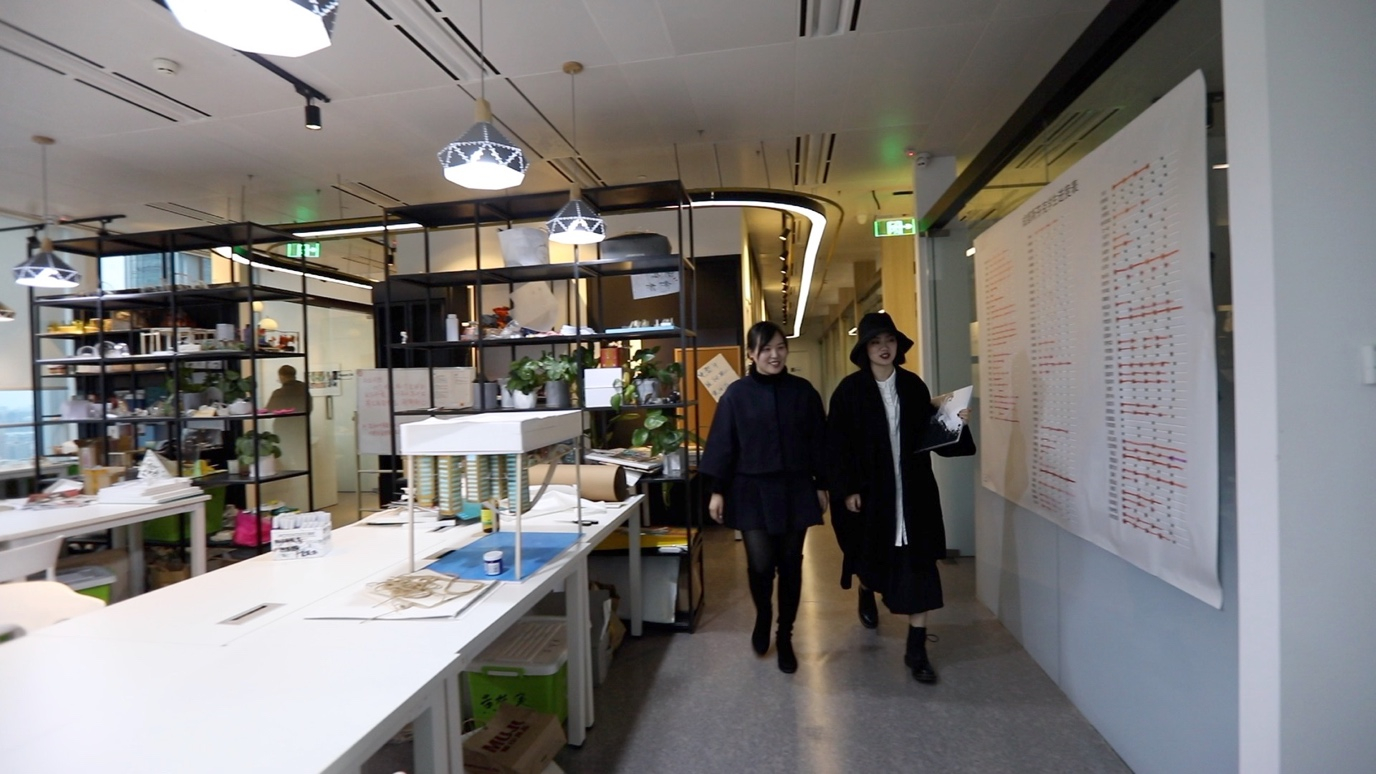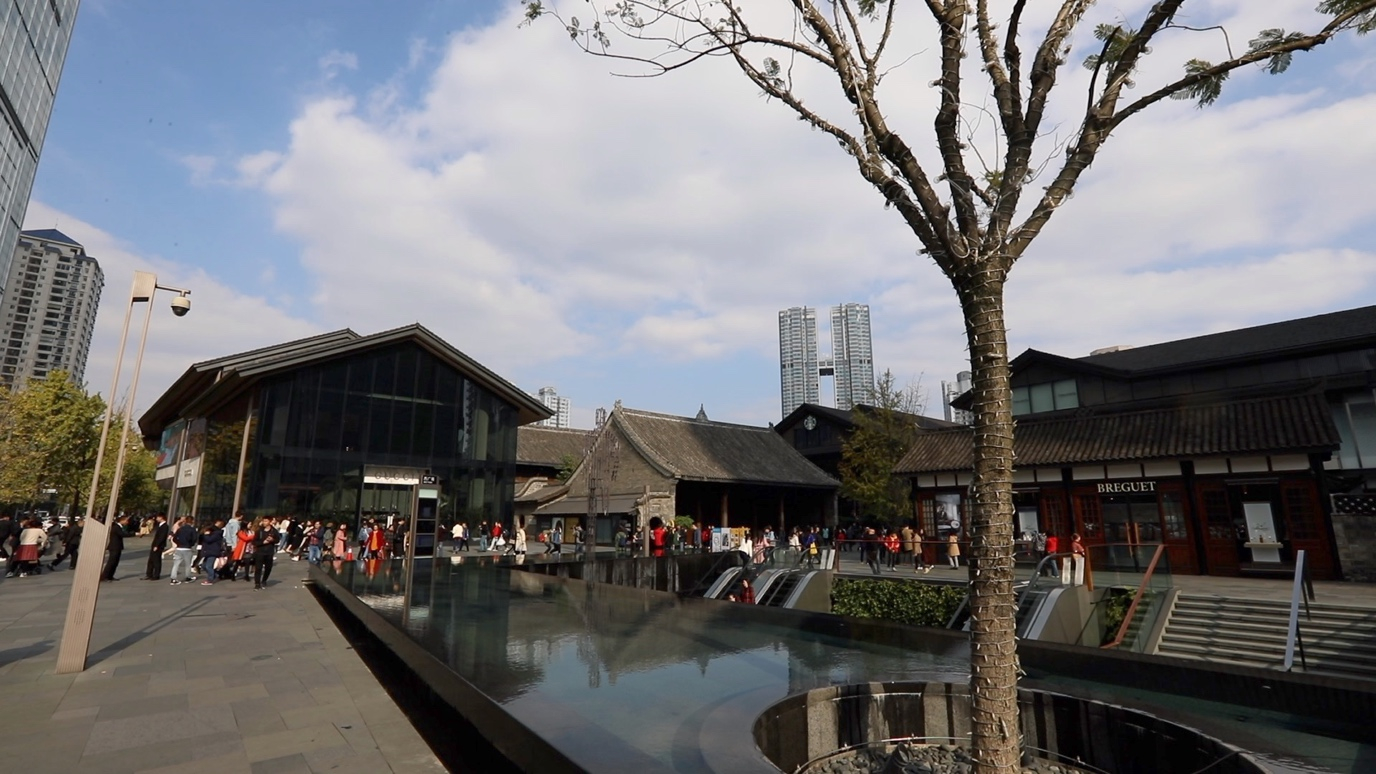02:44

After decades of investment-led, export-driven growth, China's economy is now trying to shift towards a growth driven by domestic consumption. A major factor contributing to this new consumption pattern is the increased buying power of China's post-90s generation, the segment of population born between 1990 and 1999.
Born in 1991, Guo Xia is not a "mindless shopper", but sees herself as having savvy tastes in carefuly choosing what to consume. She told CGTN that she likes buying clothes, and prefers branded items with special designs and good quality.

Guo Xia, born in 1991, spends around 60 percent of her salary on clothes and shoes. She says it's unwise for her to save money now. /CGTN Photo
Guo Xia, born in 1991, spends around 60 percent of her salary on clothes and shoes. She says it's unwise for her to save money now. /CGTN Photo
After spending four years learning at Japan's Bunka Fashion College, a vocational education school specializing in the teaching of fashion design, she landed a job in Tokyo doing fashion design, and two years after that, she returned to her hometown in southwest China's Chengdu City as a teacher, preparing local students to go overseas.
Guo told CGTN that the teaching work suits her interests and life values, and more importantly, it provides her with a stable source of income, about 1,500 US dollars a month. She spends 60 percent of her disposable income on clothes and shoes, with the rest going on cosmetic products and traveling.

An interior view of Guo Xia's workplace at downtown Chengdu City. She teaches potential overseas students fashion design. /CGTN Photo
An interior view of Guo Xia's workplace at downtown Chengdu City. She teaches potential overseas students fashion design. /CGTN Photo
As one of the post-90s generation in China, Guo holds firmly to the belief that only those who have "extra money" would choose to save. For her, saving money means downgrading her quality of life, something she refuses to do.
Unexpectedly, Guo Xia's spending habit has inspired her mum to consume more. Born in 1956, her mother, Wang Jian, lived through a period of time in China history which saw dire shortages of food and daily necessities. Following her daughter's actions, she now buys some branded clothes, and from time to time, has her nails manicured.

Guo Xia takes her mum to have fingernails manicured. It's one of the spending habits the mother picked up from her daughter. /CGTN Photo
Guo Xia takes her mum to have fingernails manicured. It's one of the spending habits the mother picked up from her daughter. /CGTN Photo
However, Wang's spending habits have been deeply influenced by her earlier experiences. She shared with CGTN that, though understandable, the way the post-90s generation consumes is still way "too expensive" to her. In fact she feels most of the items the 90's generation buy are not "necessary". Commenting on their non-saving approach of life, she believes if the younger generation becomes desperate for money someday in the future, they would definitely resort to their "parents' helping hands".

Chunxi Road, the busiest business street in Chengdu, is a famous fashion center. Data released by local government shows, the city ranked China's top three in terms of buying power in 2017, after Beijing and Shanghai. /CGTN Photo
Chunxi Road, the busiest business street in Chengdu, is a famous fashion center. Data released by local government shows, the city ranked China's top three in terms of buying power in 2017, after Beijing and Shanghai. /CGTN Photo
The post-90s generation comprises about 16 percent of China's population today. Experts predict this consumer cohort will make up more than 20 percent of China's total consumption growth between now and 2030. The number is higher than any other demographic segment.
A survey by McKinsey consulting firm shows five different priorities for the post-90s consumers in China. A large percentage of them believe success means "pursuing a happy life". As is true with Guo Xia, she believes that it's important to live for the moment, and her ideal life is being able to buy everything she likes, with no worries about money.
Official release shows that consumption made up about 60 percent of China's GDP growth in 2017, up from around 45 percent in 2010. The post-90s generation, as the most active group of consumers in China, contributed to that boom. Now, they are expected to play a bigger role, and make growth a dynamic and vibrant one.






